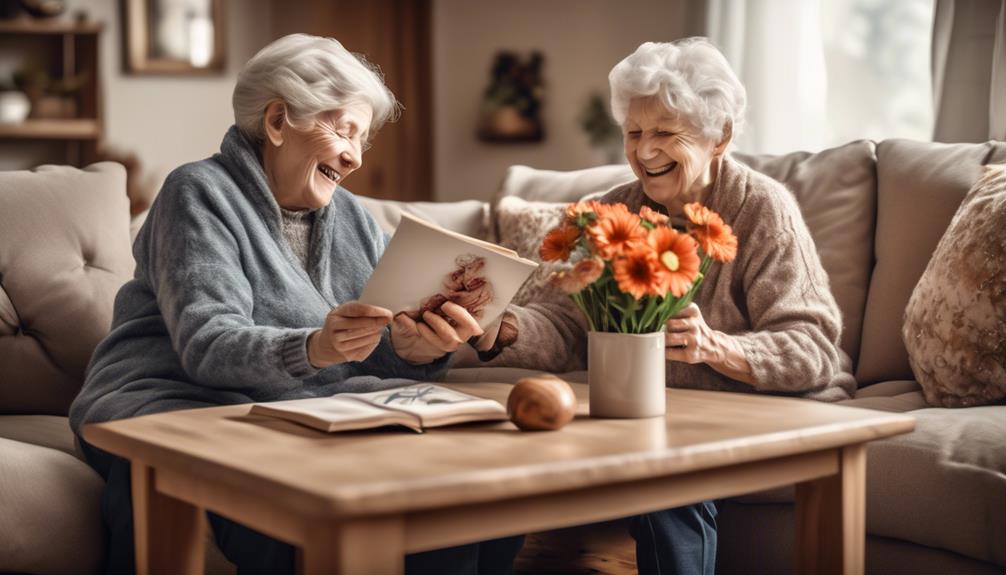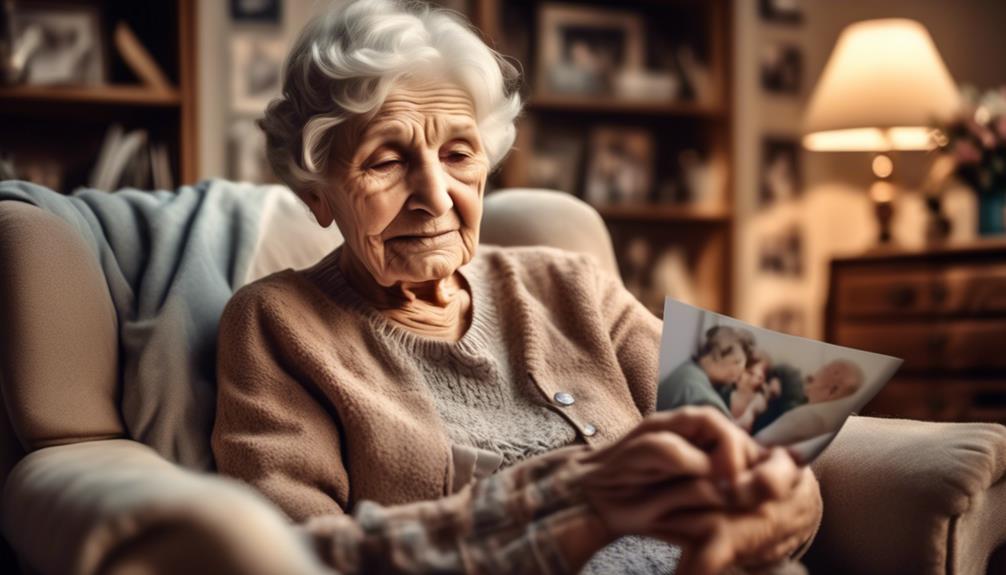It could be argued that implementing a person-centered approach in caring for individuals with dementia requires a significant shift away from traditional caregiving methods. However, recognizing the importance of tailored care and the unique needs of each person living with dementia allows us to effectively enhance their quality of life and overall well-being.
Understanding the person behind the diagnosis is crucial in providing meaningful and effective care. Through tailored interventions and a focus on dignity and respect, this approach has the potential to transform the way we support individuals with dementia. By prioritizing the unique needs, preferences, and life experiences of each individual, caregivers can foster a sense of connection and purpose even in the face of cognitive challenges. This person-centered approach not only enhances the quality of life but also aids in making critical decisions, such as when to determine hospice care eligibility. Ultimately, it paves the way for compassionate care that honors the humanity of those living with dementia.
Key Takeaways
- Personalized care plans enhance well-being and quality of life for individuals with dementia.
- Tailoring interactions to history and preferences fosters meaningful relationships.
- Incorporating likes, dislikes, and past experiences empowers support in dementia care.
- Encouraging independence and respecting choices promote dignity and enhance quality of life.
Importance of Individualized Care
Understanding the importance of individualized care in dementia is crucial for providing tailored support that enhances the well-being and quality of life for those affected by the condition. Personalizing care plans to meet the unique needs and preferences of individuals with dementia is fundamental in ensuring their overall well-being. By considering individual histories, lifestyles, and cultural backgrounds, we can create care plans that resonate with the person on a deeper level, ultimately improving their quality of life.
Incorporating opportunities for social interactions is another vital aspect of individualized care. By understanding the person's perspective and encouraging social engagement, we can help combat feelings of isolation and foster a sense of connection and belonging. Offering a variety of activities based on the individual's interests can also play a significant role in promoting well-being. Encouraging participation in preferred activities not only enhances quality of life but also supports cognitive function and emotional health.
Family involvement in care planning is essential for ensuring that personalized care plans evolve and adapt to the changing needs of the individual with dementia. By collaborating with family members, we can gain valuable insights that help us provide the best possible care as the condition progresses. Additionally, family members can assist in navigating complex processes such as understanding Medicaid eligibility requirements, which may be crucial for funding long-term care. Their involvement ensures that financial and medical considerations are addressed in a timely manner, helping to alleviate some of the burdens on the individual and their caregivers. This collaborative approach ultimately leads to more comprehensive and responsive care strategies.
Building Meaningful Relationships

Building meaningful relationships in dementia care involves tailoring interactions to each individual's history, preferences, and unique needs to foster a sense of connection and engagement. By understanding the person's background and interests, we can create a supportive environment that enhances their well-being. Meaningful relationships play a vital role in reducing behavioral symptoms commonly associated with dementia, such as agitation or withdrawal. Encouraging social interactions and personalized activities tailored to the individual fosters a deep bond between caregivers and those under their care.
Approaching each interaction with empathy and respect is crucial for establishing these connections. It's essential to remember that individuals with dementia are unique and deserving of personalized care that honors their individuality. By engaging in activities that resonate with the person's past experiences and current preferences, we can create moments of joy and connection that enrich both their lives and ours. Building meaningful relationships isn't just about providing care; it's about creating moments of genuine connection and understanding that transcend the challenges of dementia.
Tailoring Care Plans for Preferences
Tailoring care plans for preferences in dementia involves incorporating individual likes, dislikes, and past experiences to provide personalized and empowering support. By creating personalized care plans that consider cultural background, hobbies, and routines, we can offer a comfortable and familiar environment for individuals with dementia. This person-centered approach not only enhances their quality of life but also promotes empowerment and respect.
When we tailor care plans to individual preferences, we can significantly reduce agitation, improve mood, and overall well-being. Each person has unique needs and desires, and by honoring these preferences, we enable them to feel more in control of their daily lives. This customization leads to higher satisfaction levels, increased engagement in activities, and ultimately, a better quality of life for those living with dementia.
It is essential to remember that respecting individual preferences is key to providing exceptional care. By recognizing and incorporating these preferences into our care plans, we can truly make a difference in the lives of those we serve.
Enhancing Quality of Life

To foster a sense of connection and well-being for individuals with dementia, incorporating personalized care rooted in their preferences and experiences is paramount. Person-centered care interventions have shown significant benefits in enhancing the quality of life for individuals with dementia. By tailoring activities to individual preferences and providing continuous support within this framework, we can effectively reduce agitation, neuropsychiatric symptoms, and depression while improving overall well-being.
Studies have highlighted that person-centered care not only improves behavior but also has a lasting positive impact on the quality of life of individuals with dementia. Staff training plays a crucial role in this approach, with a focus on empathy and person-centeredness yielding positive outcomes. By understanding and valuing each person's unique needs and experiences, we can create a supportive environment that promotes a sense of dignity and enhances quality of life for those living with dementia.
Promoting Independence and Dignity
How can we empower individuals with dementia to maintain their independence and dignity in daily activities?
In dementia care, promoting independence and dignity is at the core of person-centered approaches. By focusing on individual needs and preferences, we can help those with dementia continue to lead fulfilling lives. Here are five key ways to promote independence and dignity:
- Encouraging engagement in tasks to the best of their ability
- Respecting choices and preferences in daily activities
- Empowering decision-making to retain a sense of control
- Providing support for self-care tasks to preserve autonomy and personal identity
- Fostering a sense of purpose through meaningful activities to maintain dignity and self-worth
Through these strategies, individuals with dementia can feel empowered, respected, and valued. By recognizing their autonomy and supporting their needs, we can help them live with dignity and purpose.
Frequently Asked Questions
What Are the Key Principles of Person-Centred Care Dementia?
When considering the key principles of person-centered care for dementia, we focus on treating individuals with dignity and understanding their unique needs.
It involves providing opportunities for social interactions, respecting preferences, and adapting care plans as needed.
By fostering independence, enhancing quality of life, and supporting emotional well-being, we ensure a holistic approach to care that prioritizes the individual's well-being and satisfaction.
Effective communication and personalized support are crucial components in promoting overall well-being.
What Is the Person Centered Approach to Care?
When we think about the person-centered approach to care, we prioritize the individual's unique needs and well-being. It's all about tailoring support, fostering independence, and nurturing relationships to enhance overall satisfaction and quality of life.
What Is an Example of a Person Centered Care Approach?
When considering a person-centered care approach, it's essential to tailor activities to individual interests and preferences. This means treating each person with dignity, respect, and understanding their unique background.
Engaging in social interactions, offering choices, and promoting autonomy are crucial components of this approach. By focusing on the individual and their needs, we can create a supportive and caring environment that enhances their quality of life.
What Are the Main Principles of a Person Centered Approach?
When we think about the main principles of a person-centered approach, we need to remember that it's all about honoring each individual's uniqueness, preferences, and history.
By focusing on dignity, respect, and understanding, we can create a caring environment that promotes independence, autonomy, and emotional well-being.
It's crucial to provide opportunities for social engagement, support cognitive abilities, and manage behavioral symptoms effectively.
This holistic approach ensures individuals with dementia feel valued and supported.
Conclusion
In conclusion, embracing a person-centered approach to dementia care is like planting seeds of empathy and understanding in the garden of our hearts. By nurturing these seeds, we can cultivate relationships, tailor care plans, and promote independence and dignity for those living with dementia.
Let's continue to water these seeds with compassion and empathy, so that they may bloom into beautiful flowers of love and support for our loved ones.









